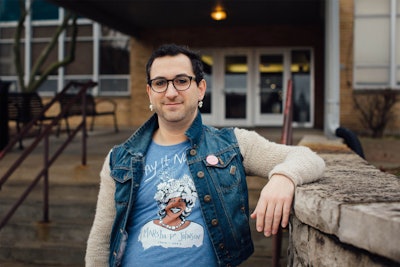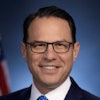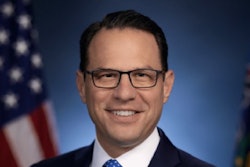 Dr. Z Nicolazzo, associate professor of trans* studies in education at the Center for the Study of Higher Education at the University of Arizona
Dr. Z Nicolazzo, associate professor of trans* studies in education at the Center for the Study of Higher Education at the University of Arizona
This move comes less than a week after Wyoming’s state senators passed a budget amendment to stop funding the University of Wyoming’s women’s and gender studies program. That amendment died in the House, but for scholars watching more and more anti-LGBTQ+ bills across states, concerns are mounting for LGBTQ+ students in higher education, especially trans women and girls.
“Clearly, this will interrupt and mediate the college-going process for trans girls,” said Dr. Z Nicolazzo, an associate professor of trans* studies in education at the Center for the Study of Higher Education at the University of Arizona and one of the few openly trans tenure-track professors in the field of higher education. “If trans girls don’t feel like education is a space for them and face barrier after barrier just to be themselves, then I would assume they actually would be trapped out of higher education before they even get to higher education.”
Since the start of this year, more than 170 anti-LGBTQ+ bills have been filed by conservative state lawmakers, outpacing last year’s total of 139, according to Freedom for All Americans, a nonprofit focused on LGBTQ+ nondiscrimination protections across the country. At least 69 of those bills this year center on K-12 school policies.
“What they’re doing is conveying to LGBTQ+ students that they are unwelcome in their learning communities—and we’re excluding students at the K-12 level from the experiences that are fundamental to their college preparation and success as well as to their identity formations,” said Dr. Margaux Cowen, chief program officer at the Point Foundation, a nonprofit that provides college scholarships and support to LGBTQ+ students across the country.
In the first week of 2022 alone, at least seven states proposed laws to limit transgender and nonbinary youth from playing sports, using bathrooms, and receiving gender-affirming healthcare.
“My main concern, because I work on K-12 issues, is that this just adds an unbelievable amount of stress to young LGBTQ+ people who are already working very hard to make their schools more equitable,” said Dr. Cris Mayo, a professor in the department of education at the University of Vermont and previously the director of the LGBTQ+ Center and a professor in women’s and gender studies at West Virginia University. “And the fact that conservatives are going after children is shocking. It’s predictable. But it’s also shocking.”






















